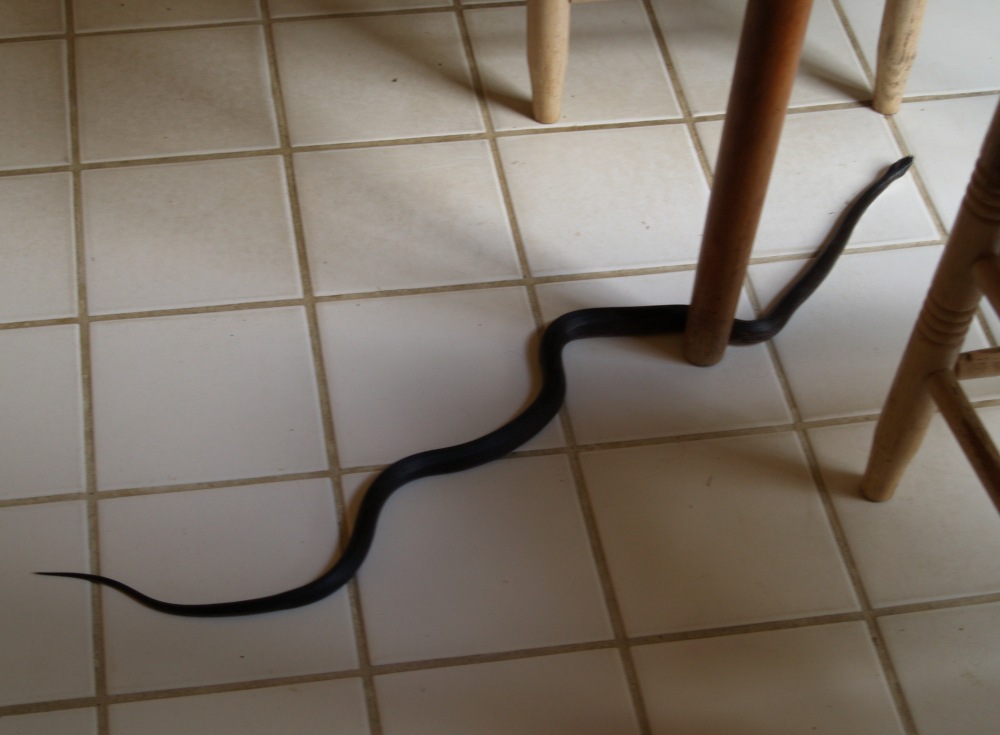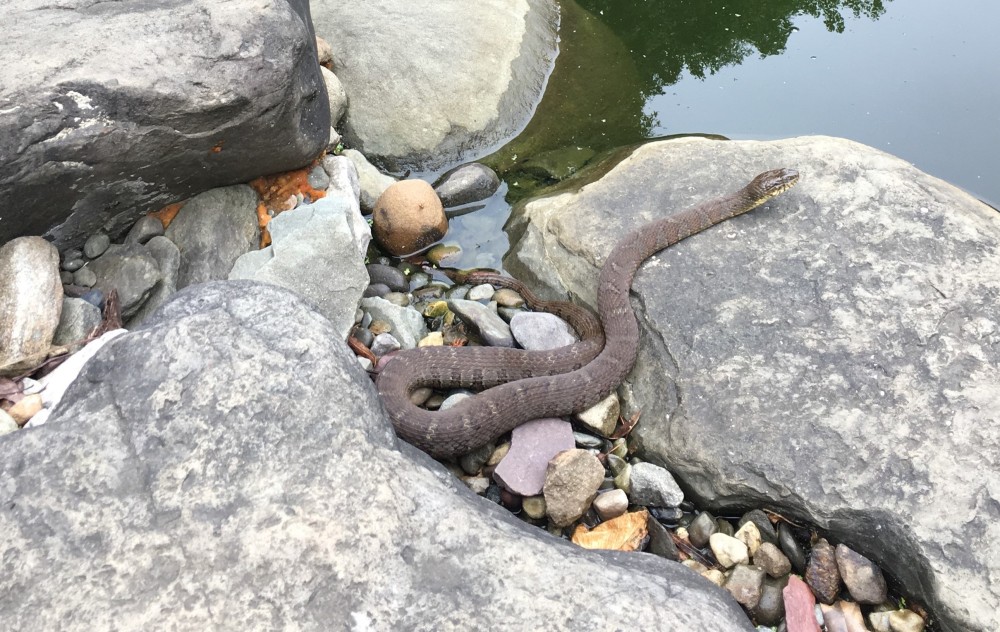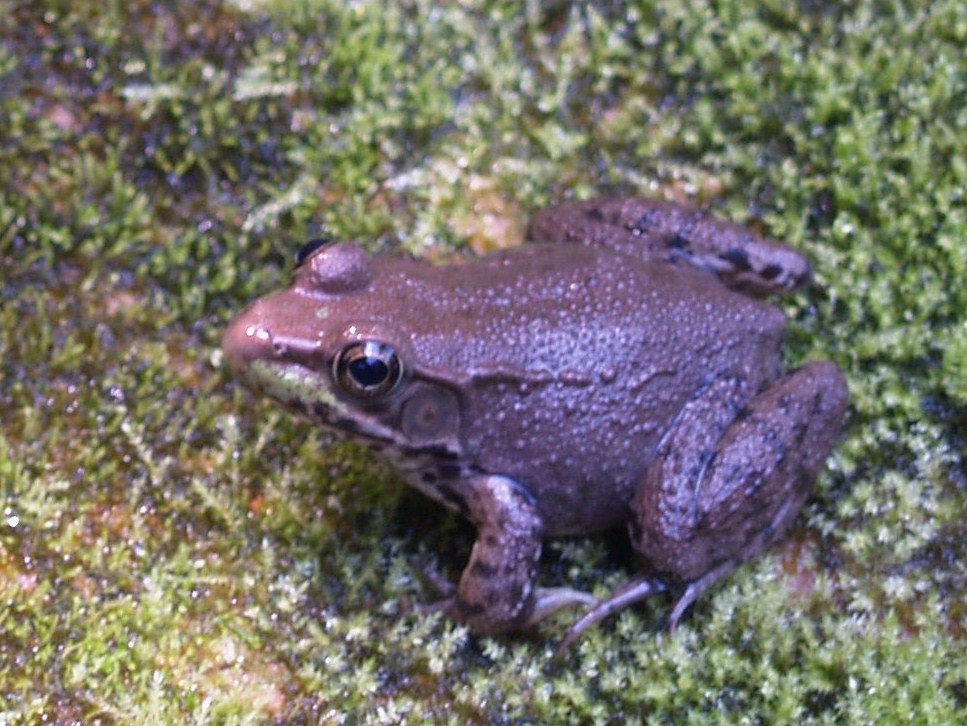There are a surprising number of possible entry points for wildlife to get into the house. After years being oblivious to this potential, I am now very aware after several snake sightings in the basement by my wife. Certainly, these are not the first sightings, and in several cases I’ve managed to shoo snakes large and small outdoors without resorting to violence (and a few without telling her). But, Barbara and snakes must never cross paths, particularly indoors, so I’ve been forced to search out and close up all of the most obvious points of entry.

The biggest no-no is bringing snakes in with the tropicals, when pots of tender plants are hauled to the basement to spend the winter indoors. At least once I brought in a snake, though I’m sure I denied it, but more often the hitchhikers into the basement are frogs. While snakes are silent, frogs are not, so they’re quickly found and moved outdoors, but acknowledging that frogs are brought in encourages the thought that snakes could also.
Fortunately or not, the latest snake sighting was before the pots of tropicals were brought indoors, so I have no blame except that I didn’t cover over two gaping holes in the wall of the garage made by the gas company when there was suspicion of a leak. Beside one, a four foot snake skin was discovered, so of course these were the first holes boarded over.

With five ponds in the garden and an acre or more of dense vegetation there’s no way to exclude snakes, nor do I ever intend to try such a thing. Several Northern Brown water snakes have been regular inhabitants of the large koi pond in recent years, and sightings of black and garter snakes, and a very occasional copperheads are not cause for alarm. The full scope of wildlife, from bugs to birds, to snakes and four legged furry creatures reside close to or in the garden, and welcoming one inevitably brings the others, so there’s no choosing.

While I don’t welcome snakes into our living area, I’m happy they’ve found a home in the garden. In the basement they keep the mouse population to a minimum (though there are better ways to accomplish this), and I’m not certain what benefit they are in the garden (except scaring Barbara), but I’m sure they do their part.
Get a pet mongoose?
I’ll consider that, but hopefully covering the holes will do the trick
Copperheads aren’t a cause for alarm? I thought they were poisonous.
I would like to restack a few of the old rock walls, but this is where copperhead often hang out, so maybe next year.
I know that many folks are going to think I’m crazy, but if I find a Black rat snake upstairs in our living area ( who obviously came upstairs from the basement) during late fall/middle of winter, I kindly return it back into the basement. Returning ANY reptile or amphibian outdoors in the middle of winter is outrageously & unnecessarily cruel. Honestly? This goes for any unexpected mid-winter invader (apart from venomous ones).
We seem to have an occasional visit by a black snake to our deck where our bluebird house is mounted. One recently got caught in the netting underneath a window box, and I thought he’d die a natural death out there. He didn’t, so I cut him out of the netting, then transplanted him to a stream and wooded area a few blocks away. Then there’s the raccoon visitor who knocks off pots from the deck railing at 2:00 a.m………..!
Snakes in the basement is one thing, but sliding across your kitchen floor…now that’s a whole ‘nother thing!
Honestly, if they’re friendly, useful, non-venomous Black rat snakes – like I said – if it’s in the middle of winter – I just put them back in the basement where they obviously came from. These days, reptiles & amphibians are really under severe pressure from habitat destruction & folks who just don’t understand them. It will be shame if more of them go extinct just due to ignorance.